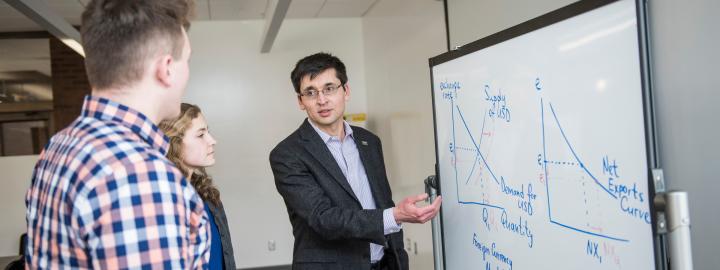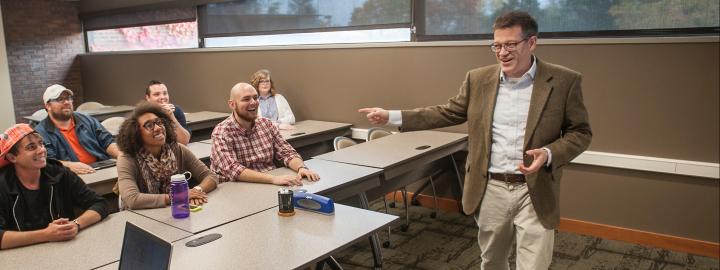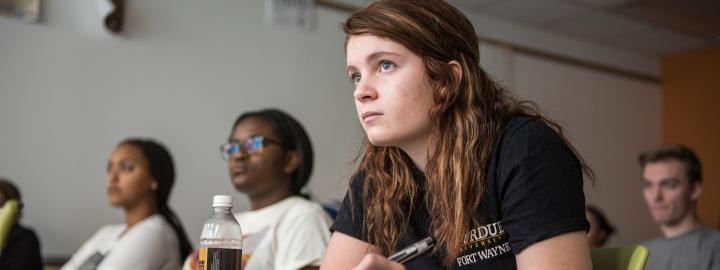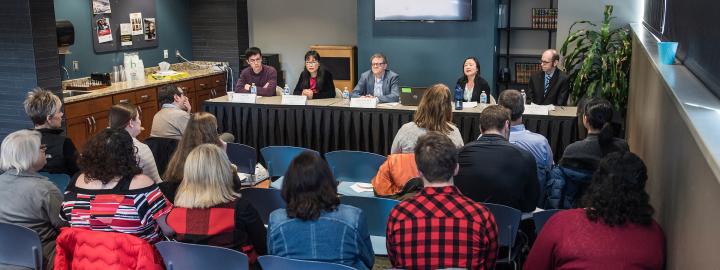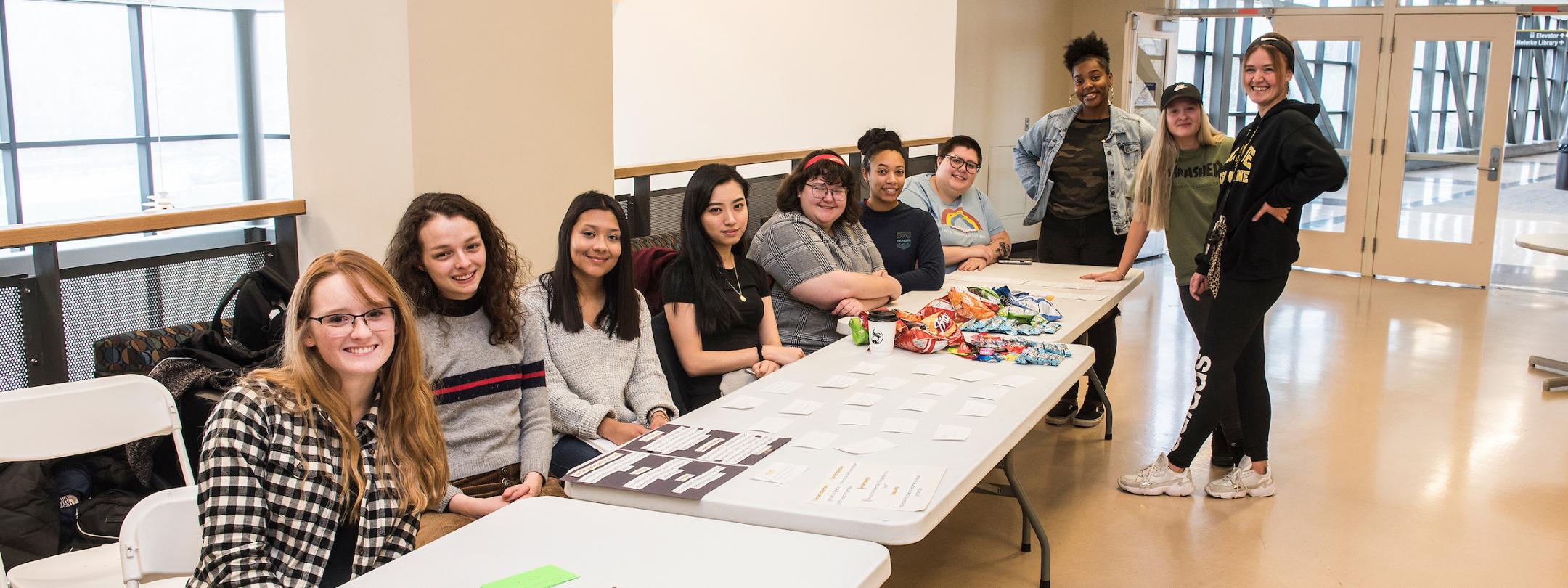
Women’s, Gender, and Sexuality Studies Program
This is where advocacy is encouraged.
Providing support, obtaining knowledge, and being passionate about a cause are what we’re all about.

Women’s, Gender, and Sexuality Studies (B.A.)
As an interdisciplinary area of study, women’s, gender, and sexuality studies will teach you how to integrate knowledge across disciplines to understand gender within historical and contemporary contexts. You’ll examine gender and its intersections with other categories of identity, including race and ethnicity, sexuality, class, nationality, and disability. You’ll also study how systems of power and oppression function, and how individuals and organizations can bring about meaningful social change.

Program
Highlights
Program Highlights
- An understanding of gender in both historical and contemporary contexts
- Knowledge regarding the intersections of gender with race, nationality, class, sexuality, and disability
- The development of expert critical-thinking, problem-solving, speaking, and communication skills
- Support from the Mastodon community
- A prestigious Purdue degree
career and salary data
How far will you go?
General labor market and salary data are provided by Lightcast via O*NET and may not represent the outcomes experienced by Purdue Fort Wayne graduates in these programs. Purdue Fort Wayne graduates in these programs may earn salaries substantially different or less than the amounts listed. Salary and employment outcomes vary by geographic area, previous work experience, education, and opportunities for employment that are outside Purdue Fort Wayne’s control. Purdue Fort Wayne does not guarantee employment placement, salary level, or career advancement.
Student Learning Outcomes
Upon completion of this degree, students will be able to demonstrate the following learning outcomes:
- Understand the major concepts of feminist critical analysis, including gender, race, class, sexuality, nationality, ability, and age, and the complexities of their intersections
- Understand how gender is socially and historically constructed; how it relates to systems of power, privilege, and oppression; and how it impacts our lives
- Understand a broad range of feminist theories, with an appreciation for their cultural and historical contexts
- Understand the history and importance of feminist thought and activism in the United States and around the globe
- Understand the diversity of women’s experiences, roles, and contributions to society and culture
- Understand how gender impacts the production of knowledge and how feminist approaches to learning and research have transformed traditional disciplines and other canons of knowledge
- Understand the history and status of women’s studies as an academic field of study and the key principles that distinguish it from traditional disciplines, including its interdisciplinarity, its commitment to feminist approaches to teaching and learning, and its development of feminist research methods
- Demonstrate effective reading, speaking, writing, and critical-thinking skills through the work they complete in women’s studies courses
- Apply feminist perspectives to a range of issues and engage in critical debates or areas of contention within feminism
- Apply feminist perspectives across disciplines
- Incorporate feminist theories and scholarship in research methods and problem-solving
- Transform knowledge into engagement and articulate effective strategies for change
- Advertising Executive
- Counselor
- Educator
- Government Agent
- Grant Writer
- Health Clinician
- Human Resources Specialist
- Journalist
- Lawyer
- Lobbyist
- Market Researcher
- Museum Curator
- News Correspondent
- Nonprofit Administrator
- Public Relations Specialist
- Publisher
- Social Justice Advocate
- Social Worker

